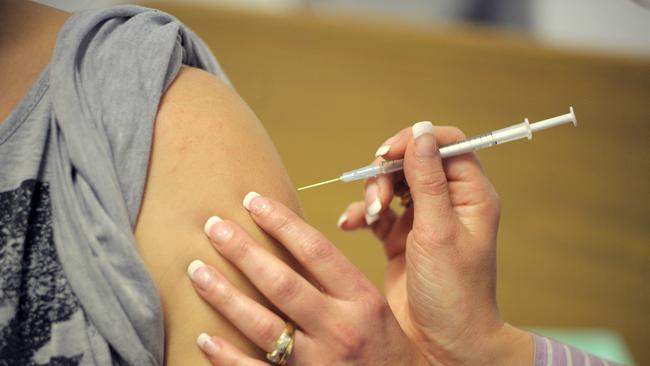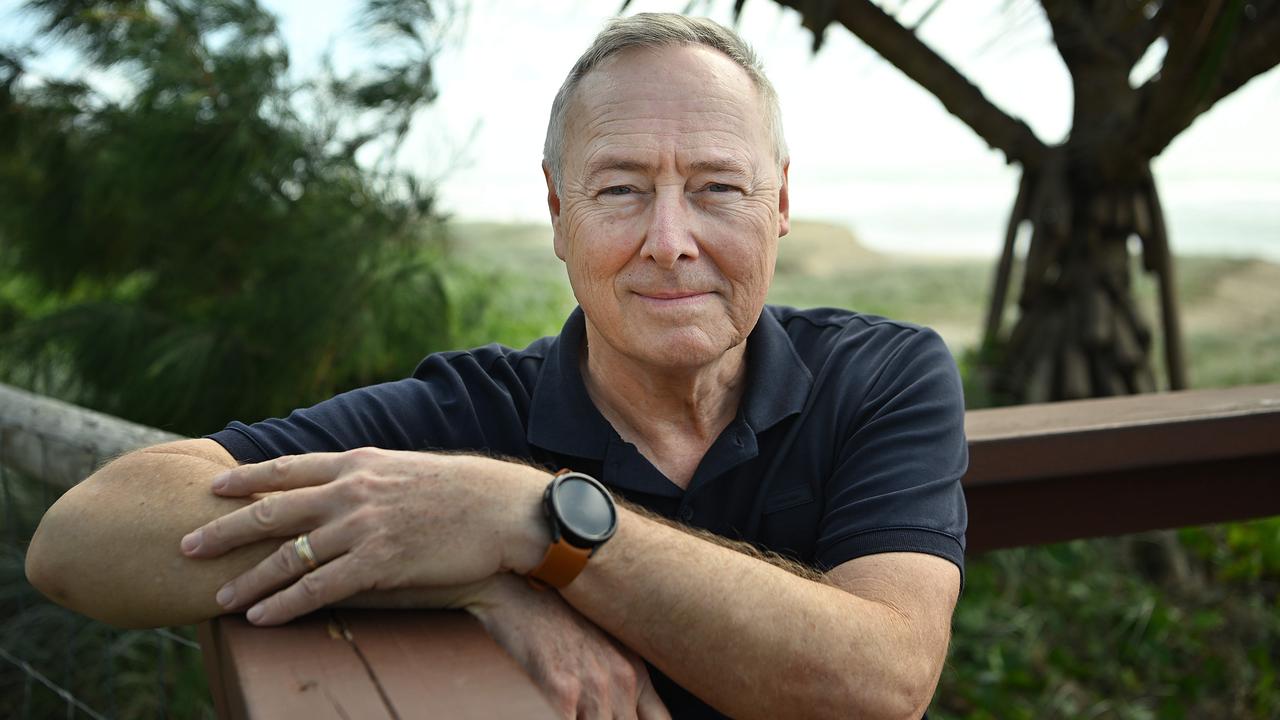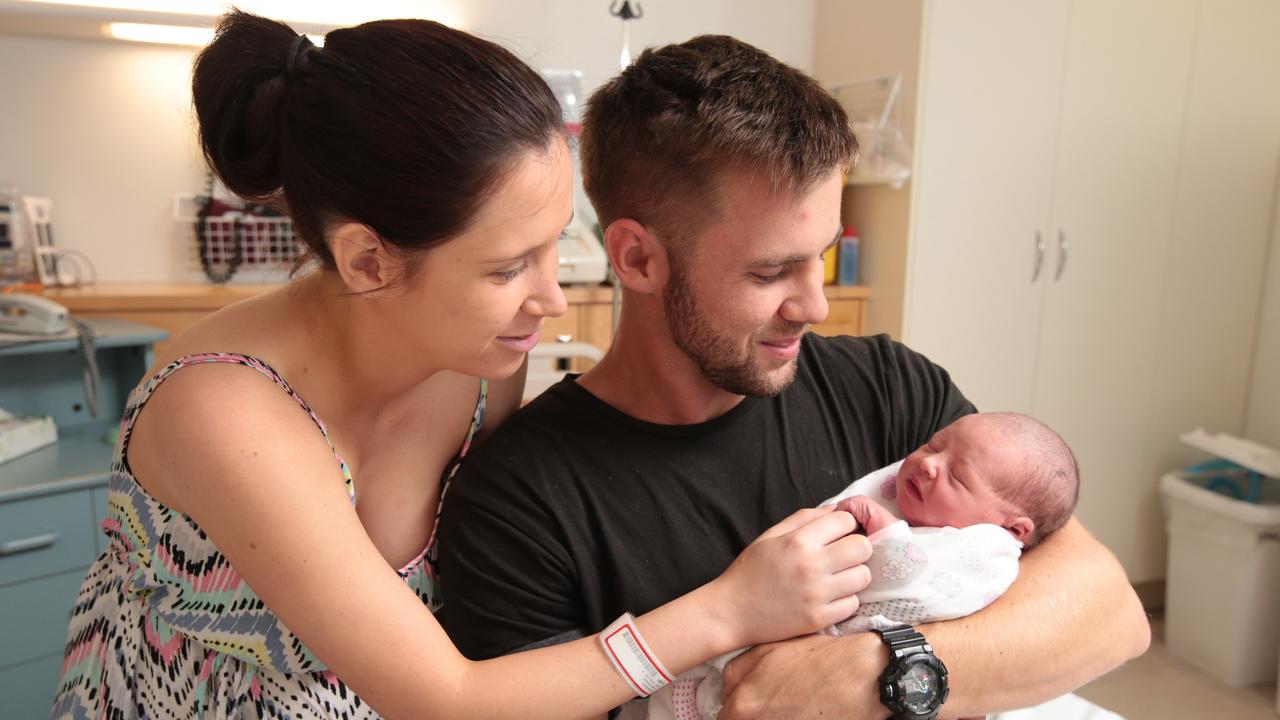CSL Seqirus’s cell-based ‘super flu jab’ more effective than conventional vaccines
Australia’s biggest health company has revealed its flu shot is 15pc more effective than conventional ones. But don’t expect the government to pay for it.

CSL’s vaccine unit says its latest cell-based flu shots are up to 15 per cent more effective than conventional jabs made from chicken eggs, as the northern hemisphere expects to be hit with a trifecta of harmful respiratory viruses in coming months.
CSL Seqirus, pronounced ‘secure us’, revealed that its cell-based influenza vaccine - known as its ‘super flu jab’ offered greater protection than regular shots, based on data from the past three flu seasons.
It comes as the northern hemisphere is bracing for one of its most severe flu seasons following the end of pandemic restrictions.
But it’s not only the flu which is sparking concern, with new Covid-19 variants on the rise along with respiratory syncytial virus infections (RSV), which have begun to spike.
RSV warnings are in place at US airports, with health authorities warning of the virus’s severity, while free at-home Covid-19 tests remain on offer.
Vaccines for all three of these illnesses, including new RSV shots and reformulated vaccines for Covid-19 and the flu, will be available for the first time this season in the US.
The Therapeutic Good Administration is also considering RSV jabs and has granted priority review to Moderna for its mRNA-based shot, while the Massachusetts-based company is planning to release a combined Covid-19, flu and RSV jab by early 2026.
But vaccine fatigue after three pandemic-plagued years and government mandates has slowed the uptake of inoculations, combined with some distrust of big pharma.
Julianne Bayliss, medical director of vaccines and biosecurity at CSL Seqirus, is aware of such concerns but said immunisation remained vital in ensuring public health.
“If you’re vaccinated you’re less likely to become unwell. And if you do become unwell, you’re less likely to have severe disease. So there’s that important benefit for the individual,” Dr Bayliss said.

“There’s also a big benefit for the public health system and society as a whole. We see fewer people going to their GP because they’re unwell. We see fewer people presenting at a hospital because they’re unwell.
“And these are all really important public health impacts that can be felt broadly across society and really speaks to the ongoing importance of vaccination.”
Overall, CSL Seqirus’s sales surged 9 per cent to $2.03bn, last financial year, largely thanks to seasonal influenza vaccines, particularly its cell-based shot Flucelvax. It costs about $40 a shot and sales increased 30 per cent.
“This growth was achieved against a backdrop of reduced rates of immunisation and highlights the strength of CSL Seqirus‘ strategy and its high value differentiated product portfolio,” the company said.
It is betting on the future of flu shots being cell-based as opposed to using mRNA - which has created more hype - building a $800m new factory and cell culture facility at Tullamarine in Melbourne’s north.
Given cell-based vaccines are produced from culture instead of being grown in eggs, more shots can also be produced at short notice, for example in a pandemic-like environment. Crucially, the company says manufacturing the vaccine using this method eliminates the introduction of mutations that can occur during the traditional egg-based manufacturing process.
Despite the increased effectiveness, however, the cell-based shot is still not available for free under the government’s National Immunisation Program. “There‘s a process involved in getting any vaccine listed on the National Immunisation program and we’re working with government and policy stakeholders towards that,” Dr Bayliss said.
CSL Seqirus unveiled its new study at the 2023 European Scientific Working Group on Influenza (ESWI) Conference in Spain late last month.
According to the study, cell-based influenza vaccines demonstrated between 10 – 15 per cent “relative improvement” in vaccine effectiveness compared to traditional egg-based vaccines among people aged 4 – 64 years, during three influenza seasons in the United States from 2017-18.
A seperate Australian study showed that if half of the population under 65 years had received flu vaccines with a 15 per cent improved effectiveness between 2015 and 2019, Australia could have prevented an additional 12,660 notified flu cases and 1,300 people being hospitalised per year.
Jonah Smith, Vice President and Program Lead for the new CSL Seqirus Manufacturing Facility says the data is important in demonstrating the value of the company’s investment at Tullamarine.
“CSL Seqirus have distributed over 215 million cell-based influenza vaccine doses worldwide, with demand doubling in the last two years. Australia will soon be a major contributor in meeting this demand through our new facility, so it’s important for us to show that these vaccines can help deliver improved outcomes for people and the health system,” he said.
“This will be the only cell-based seasonal and pandemic influenza vaccine manufacturing facility in the Southern Hemisphere and will provide access to innovative Australian-made vaccines.
“We’ll reach completion of the buildings next year and then we’ve got a very critical commissioning qualification phase – working with Australia’s regulators to register the new site and products, and bring the site online by 2026.”







To join the conversation, please log in. Don't have an account? Register
Join the conversation, you are commenting as Logout